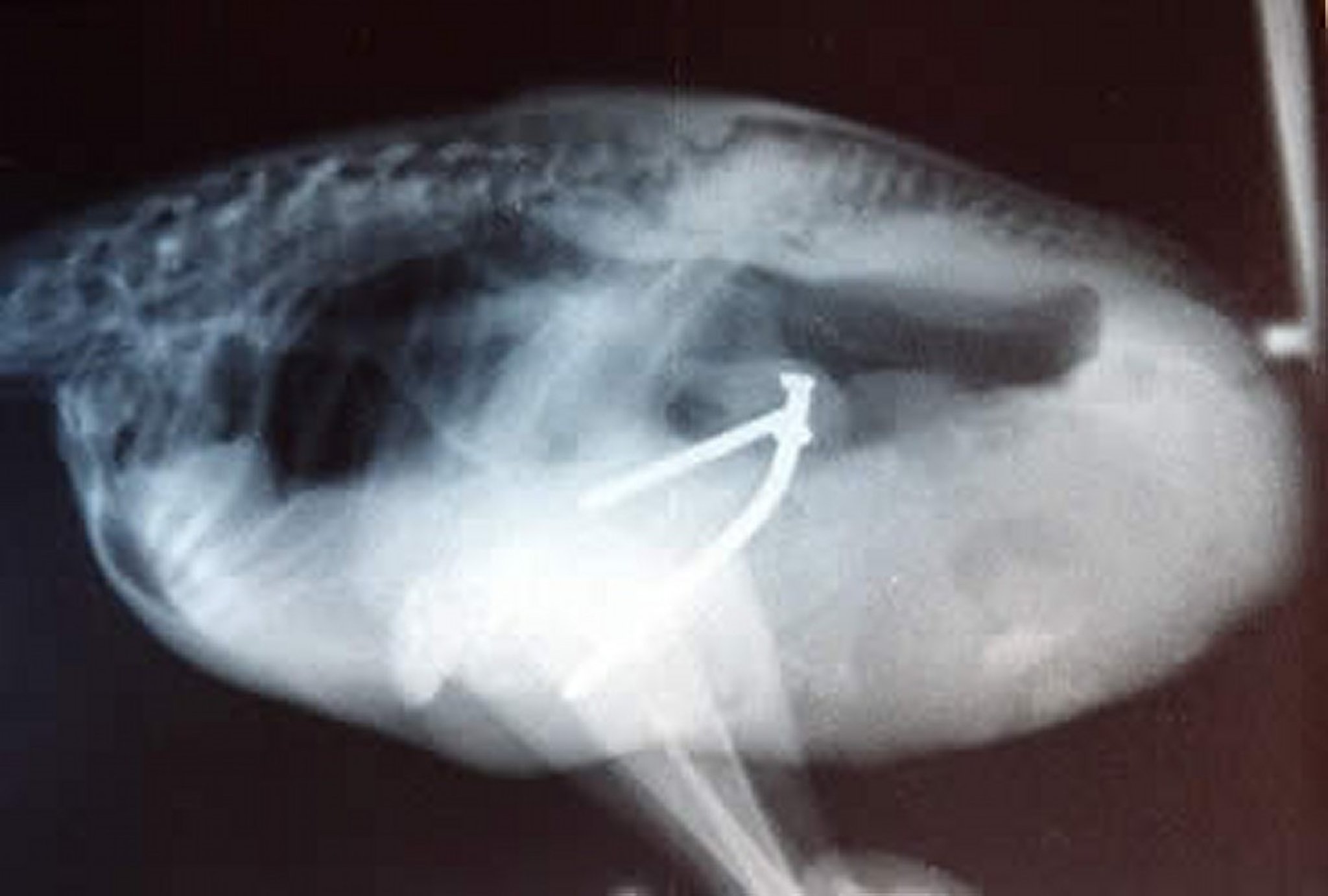Courtesy of Dr. Karen Hicks-Alldredge.
Impaction of the proventriculus and ingestion of foreign bodies are management-related problems. Chicks are at high risk of impaction for the first 2 weeks after movement to a new environment, with or without a change in substrate or diet. Proventricular impactions are also diagnosed as a sequela of diseases involving ileus of the GI tract. Impactions with sand and concentrated feed can be managed medically with psyllium laxatives and supportive care. Impactions with forages or ingestions of foreign material (eg, hardware, rocks, jewelry) require proventriculotomy surgery for removal and subsequent resolution of the problem.
Cloacal prolapses are common in young chicks. Frequently, the chick has diarrhea or an impaction within the GI tract that causes straining and subsequent prolapse of the cloaca. The prolapse is easily reduced, and a purse-string suture is placed for 24–48 hours, making sure the bird can defecate/urinate normally while the suture is in place.
Intestinal torsion or volvulus, primarily involving the colon, occurs in ostriches of all ages. It can present as a flock problem when the diet is suddenly changed, especially if the new diet has a high fiber content. Clinical signs include scant to no feces, slight diarrhea, abdominal enlargement, and vomiting. Abdominocentesis and radiographic imaging of the coelom are diagnostic. When a diagnosis is made early, surgical intervention is corrective; however, surgery is often not economically feasible.
